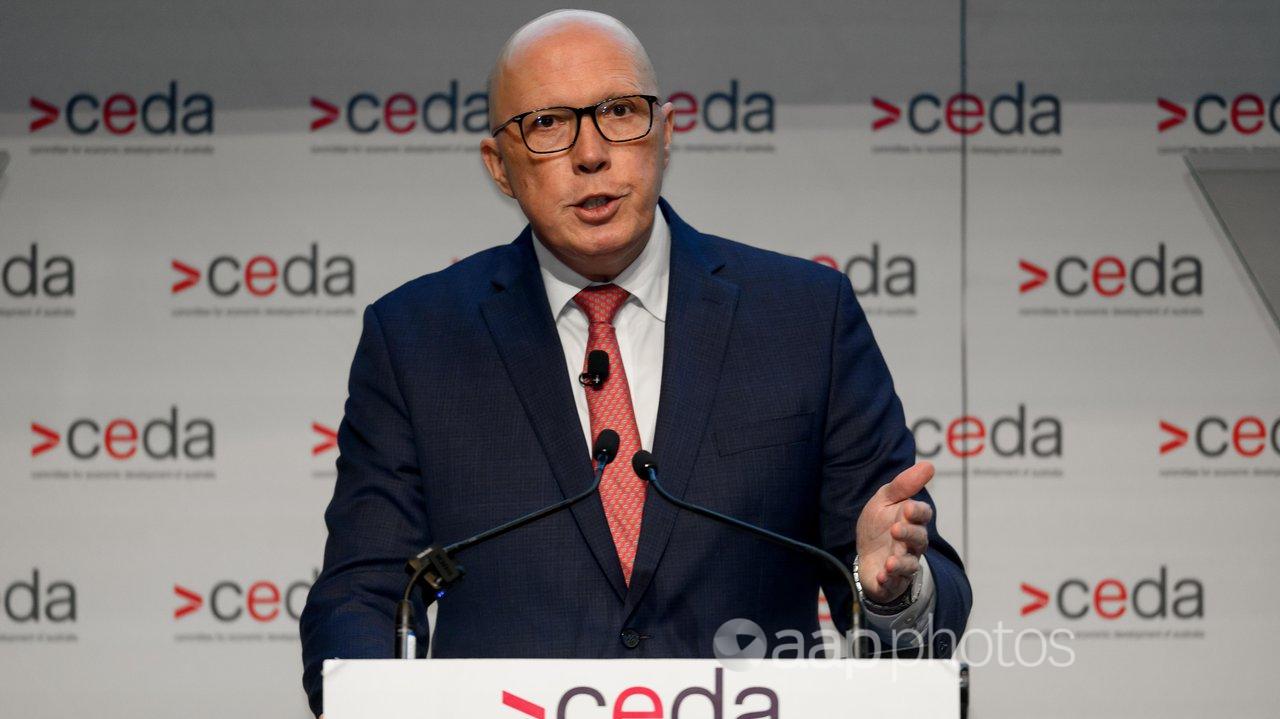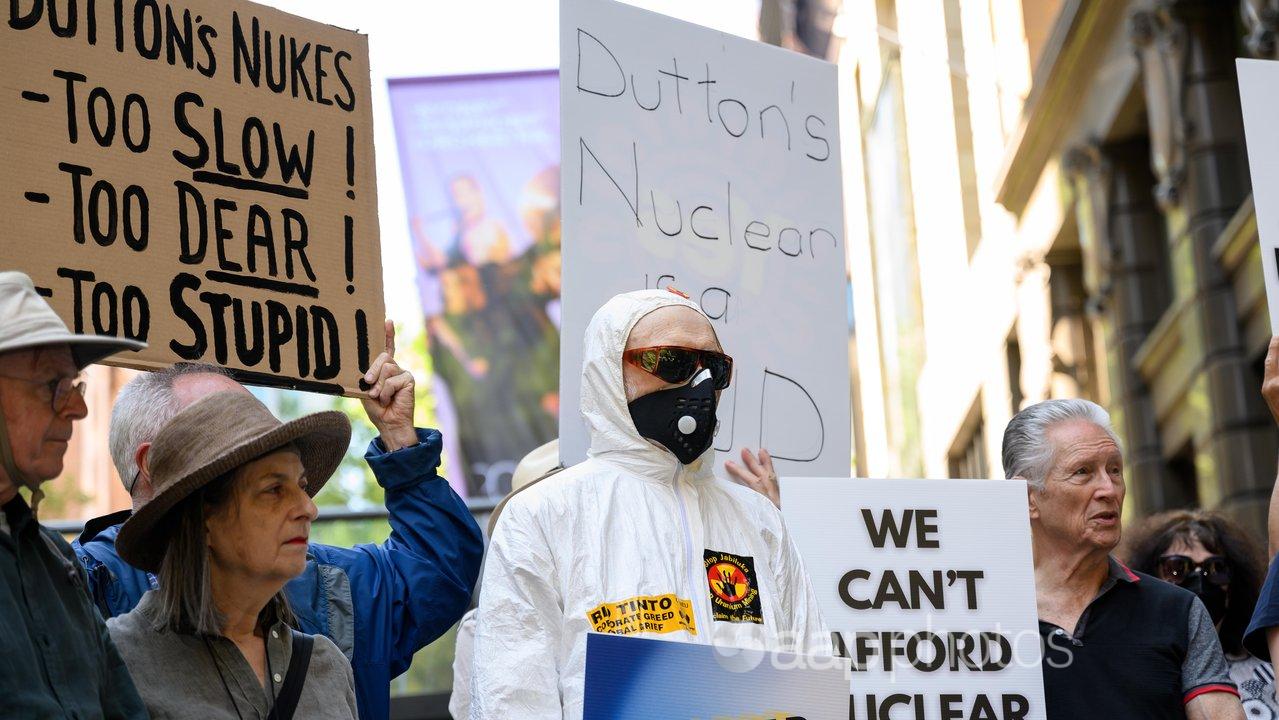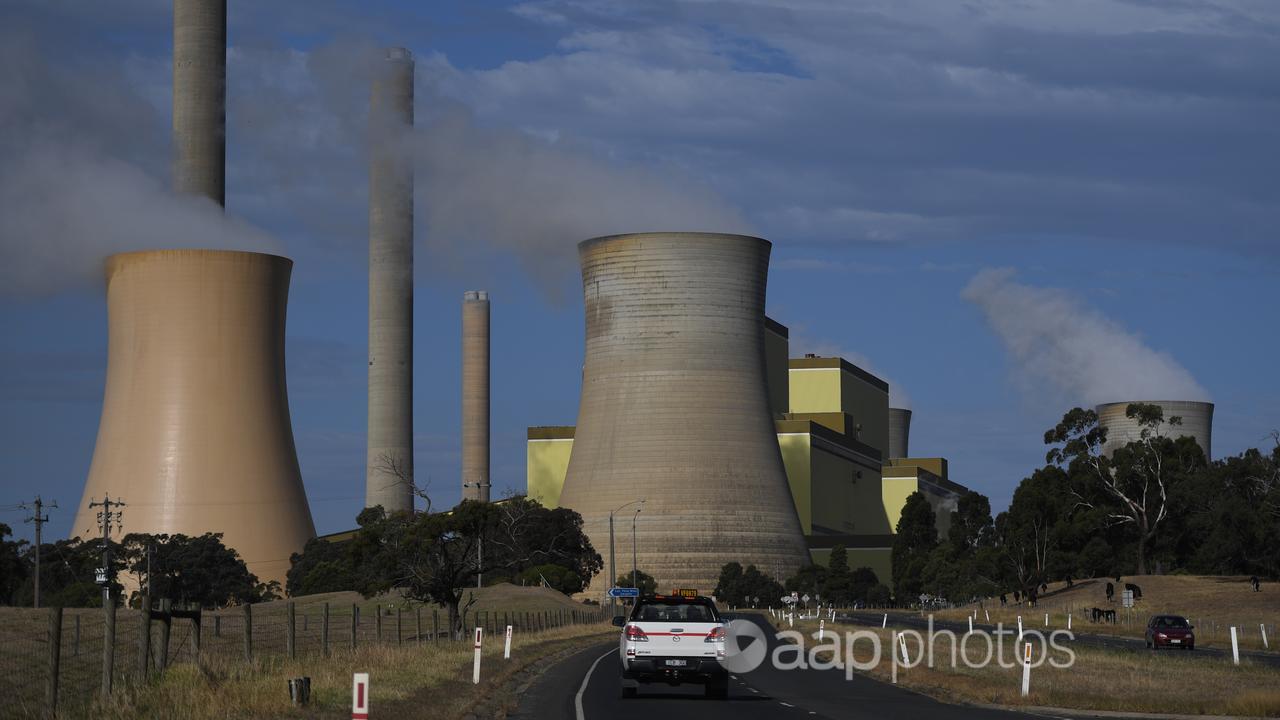Nuclear energy could be a companion to renewables rather than a competitor, the opposition leader says, but he still can’t say how much it would cost to build reactors in Australia.
In a major speech on Monday to the Committee for Economic Development of Australia, Peter Dutton laid out his case for why nuclear power should be part of the country’s energy mix.
The federal coalition has pledged to build seven nuclear reactors across five states should it win the next election due by May next year.
Mr Dutton said Australia had been resistant to the idea of nuclear energy for too long and needed to embrace it.

“If our national goals are for cheaper, cleaner and consistent energy, then Australia must join the growing league of nuclear-powered nations,” he said.
“Nuclear energy in Australia is an idea whose time has come.
“The coalition, like other countries, sees renewables and nuclear as companions, not competitors.”
Under its proposal, reactors would be built in Lithgow and the Hunter Valley in NSW, the Latrobe Valley in Victoria, Port Augusta in South Australia, Collie in Western Australia and Callide and Tarong in Queensland.
The first reactor would be built within 10 to 12 years, with the remainder to be operational from the 2040s, if the coalition wins government next year.
However, Mr Dutton did not disclose how much the proposal would cost taxpayers.
“Yes, our nuclear plan does have a significant upfront cost, but a whole new and vast transmission network and infrastructure won’t be needed,” he said.
“We will release our costings in due course, at a time of our choosing.”
He claimed nuclear energy would be the only viable way for Australia to meet net-zero emissions targets by 2050.
“I want a better environment for our future generations by adopting cleaner energy. But I also want our children to inherit a prosperous economy underpinned by cheaper and consistent energy,” Mr Dutton said.
“We can have cheaper, cleaner and consistent energy if we adopt nuclear power.”
Attendees at the speech were met with by a group of anti-nuclear demonstrators, some wearing hazard suits and masks, outside the venue in the Sydney CBD

The opposition leader took aim at those in the government who oppose his nuclear stance, saying nuclear energy would be used to power submarines under the AUKUS security pact.
“Accordingly, any objections to a civil nuclear industry on the grounds of safety and waste disposal are inconsistent and illogical,” he said.
“Australians deserve better than childish scare campaigns depicting three-eyed fish and koalas.”
Prime Minister Anthony Albanese hit out at the lack of detail from Mr Dutton surrounding the costing of the nuclear policy.
“Months after he said he would come clean with how much it would cost, with all of the detail, we have none of it,” he told reporters in Canberra.
“Along with part of their anti-capitalism agenda, they’re saying that the state should own all the nuclear power plants because no one in any market based system would go anywhere near it.”

Policy director at the Clean Energy Council Christiaan Zuur said nuclear did not make sense for Australia’s energy needs.
“Put simply, this is a high-cost, high-risk experiment that Australia cannot afford,” he said.
“To divert from renewables to nuclear would not only prove costly for Australian households but would also increase the risk of them sitting in the dark as they wait at least 20 years for these reactors to be built.”




















